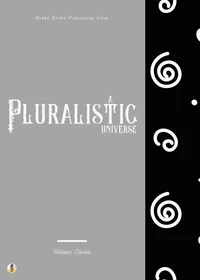Pragmatism: A New Name for Some Old Ways of Thinking
Par :Formats :
Disponible dans votre compte client Decitre ou Furet du Nord dès validation de votre commande. Le format ePub est :
- Compatible avec une lecture sur My Vivlio (smartphone, tablette, ordinateur)
- Compatible avec une lecture sur liseuses Vivlio
- Pour les liseuses autres que Vivlio, vous devez utiliser le logiciel Adobe Digital Edition. Non compatible avec la lecture sur les liseuses Kindle, Remarkable et Sony
 , qui est-ce ?
, qui est-ce ?Notre partenaire de plateforme de lecture numérique où vous retrouverez l'ensemble de vos ebooks gratuitement
Pour en savoir plus sur nos ebooks, consultez notre aide en ligne ici
- Nombre de pages132
- FormatePub
- ISBN859-65--4734860-3
- EAN8596547348603
- Date de parution15/09/2022
- Protection num.Digital Watermarking
- Taille356 Ko
- Infos supplémentairesepub
- ÉditeurDIGICAT
Résumé
In "Pragmatism: A New Name for Some Old Ways of Thinking, " William James deftly articulates a philosophical framework that champions practicality over dogma, positioning pragmatism as a vital method for resolving metaphysical disputes and guiding moral conduct. Written in an accessible yet intellectually rigorous style, James intertwines philosophical discourse with real-world applications, thereby contextualizing pragmatism within the burgeoning landscape of American philosophical thought at the turn of the 20th century.
Through a series of thought-provoking essays, he revisits longstanding philosophical debates, illuminating how ideas should be evaluated based on their practical consequences rather than their adherence to abstract principles. William James, an eminent psychologist and philosopher, was influenced by the uncertainties of his time, including the rise of scientific skepticism and the quest for individual meaning.
His background in psychology, along with his explorations of religious experiences, informed his belief that ideas are tools for navigating life's complexities. His commitment to a philosophy that is grounded in lived experience and utility reflects a broader trend in American thought, which seeks relevance in a rapidly modernizing world. "Pragmatism" is a compelling read for those seeking a nuanced understanding of philosophy's relevance in everyday life.
James's dynamic approach encourages readers to reconsider their beliefs and engage with the world in a manner that prioritizes outcomes and adaptability. This book is essential not only for students of philosophy but for any thoughtful individual navigating the complexities of the modern landscape.
Through a series of thought-provoking essays, he revisits longstanding philosophical debates, illuminating how ideas should be evaluated based on their practical consequences rather than their adherence to abstract principles. William James, an eminent psychologist and philosopher, was influenced by the uncertainties of his time, including the rise of scientific skepticism and the quest for individual meaning.
His background in psychology, along with his explorations of religious experiences, informed his belief that ideas are tools for navigating life's complexities. His commitment to a philosophy that is grounded in lived experience and utility reflects a broader trend in American thought, which seeks relevance in a rapidly modernizing world. "Pragmatism" is a compelling read for those seeking a nuanced understanding of philosophy's relevance in everyday life.
James's dynamic approach encourages readers to reconsider their beliefs and engage with the world in a manner that prioritizes outcomes and adaptability. This book is essential not only for students of philosophy but for any thoughtful individual navigating the complexities of the modern landscape.
In "Pragmatism: A New Name for Some Old Ways of Thinking, " William James deftly articulates a philosophical framework that champions practicality over dogma, positioning pragmatism as a vital method for resolving metaphysical disputes and guiding moral conduct. Written in an accessible yet intellectually rigorous style, James intertwines philosophical discourse with real-world applications, thereby contextualizing pragmatism within the burgeoning landscape of American philosophical thought at the turn of the 20th century.
Through a series of thought-provoking essays, he revisits longstanding philosophical debates, illuminating how ideas should be evaluated based on their practical consequences rather than their adherence to abstract principles. William James, an eminent psychologist and philosopher, was influenced by the uncertainties of his time, including the rise of scientific skepticism and the quest for individual meaning.
His background in psychology, along with his explorations of religious experiences, informed his belief that ideas are tools for navigating life's complexities. His commitment to a philosophy that is grounded in lived experience and utility reflects a broader trend in American thought, which seeks relevance in a rapidly modernizing world. "Pragmatism" is a compelling read for those seeking a nuanced understanding of philosophy's relevance in everyday life.
James's dynamic approach encourages readers to reconsider their beliefs and engage with the world in a manner that prioritizes outcomes and adaptability. This book is essential not only for students of philosophy but for any thoughtful individual navigating the complexities of the modern landscape.
Through a series of thought-provoking essays, he revisits longstanding philosophical debates, illuminating how ideas should be evaluated based on their practical consequences rather than their adherence to abstract principles. William James, an eminent psychologist and philosopher, was influenced by the uncertainties of his time, including the rise of scientific skepticism and the quest for individual meaning.
His background in psychology, along with his explorations of religious experiences, informed his belief that ideas are tools for navigating life's complexities. His commitment to a philosophy that is grounded in lived experience and utility reflects a broader trend in American thought, which seeks relevance in a rapidly modernizing world. "Pragmatism" is a compelling read for those seeking a nuanced understanding of philosophy's relevance in everyday life.
James's dynamic approach encourages readers to reconsider their beliefs and engage with the world in a manner that prioritizes outcomes and adaptability. This book is essential not only for students of philosophy but for any thoughtful individual navigating the complexities of the modern landscape.











